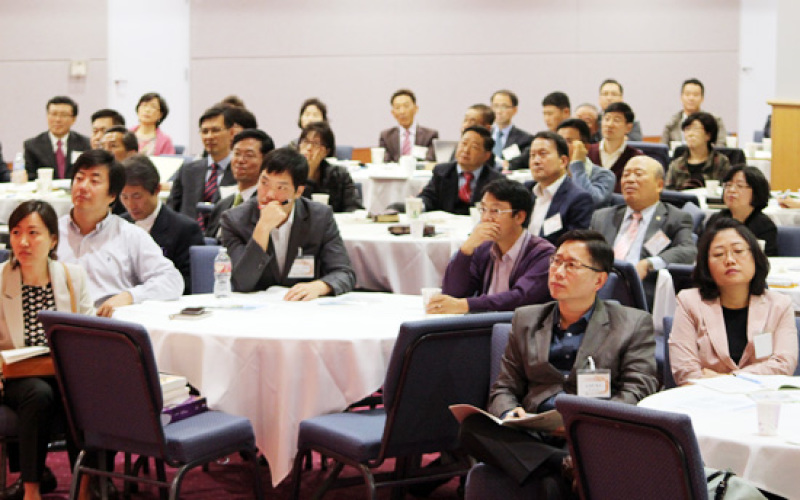

Some 200 pastors, pastors' wives, seminarians, gathered at Grace Ministries International on March 12 for a one-day conference on healthy pastoring in a Korean immigrant church.
The Council of Korean Churches in Orange County hosted a one-day conference for pastors on March 12 at Grace Ministries International, located in Fullerton, CA. The conference featured seven pastors from different churches and denominations as speakers to speak on seven different topics revolving around the theme, "The identity of the pastor, and a healthy pastoral ministry in the immigrant church." Some 200 pastors, pastors' wives, and seminarians attended the event.
Ki-Chae Hahn from Central Church, located in Seoul, South Korea, was one of the speakers at the conference, and titled his lecture, "Now is the time for ethical pastoring."
"In Christ, every vocation or job is a holy career, and ways through which one can serve the Lord, but the position of a pastor is a particularly direct and holy calling from God," Hahn said. "Pastors need a "calling within a calling' that God has called them into the role of a pastor."
Hahn pointed out the decline of trust in the Korean church from the greater society, and the loss of authority in the pastoral position, and said, "Just like the foolish farmer who considered the goose as a tool by which he can gain golden eggs, if pastors see their congregation as a tool for revival, they need to repent."
"If a pastor doesn't want his position to simply be a way to maintain a "clerical" lifestyle, a pastor must have deep, spiritual roots. Pastoring is not a technical skill; it is faith and life," Hahn continued. In that sense, he said, "The messenger is the message. The preacher must live according to the Word, and before telling others what to do, he must first apply the Word into his own life."
Regarding the notion, "I like Jesus, but I don't like church. And I dislike pastors even more," Hahn said, "In order to restore trust, pastors must live out a lifestyle of faith. Pastors must be pure, honest, and be able to carry out visions for the future."
"Right now, more than the church undergoing suffering as a result of the world's sinfulness, it seems that the world is undergoing suffering due to the church' sinfulness," Hahn said.
"Pilate asked, "What is the truth?' but he actually should have asked, "Who is the truth?' Truth is not an epistemic concept, but it is an ontological concept," Hahn emphasized. He went on to say that ethical pastoring includes pastoring through character, pastoring through emotional touch, pastoring through Sabbath, and "green" pastoring.
"We do not live according to fate but according to character. In order to change our fate, we must change our character," Hahn said, and thus, pastoring should be done through an individual's character. He continued saying that in all things, pastors must be led by the leading of the Holy Spirit and bear Christ's character while pastoring. People also seek after emotional touch, and thus, a pastor must be able to move people, and the best leadership is one that moves and touches hearts. Furthermore, a pastor must also, through Sabbath, do ministry according to God's rhythm. True Sabbath is one in which "existence" is prioritized over "doing," and refers to true restoration of the spirit. "Green" pastoring is, as it sounds, one that considers the environment. This mindset allows one to come out of a materialistic perspective to one that values life.
Until recently, most discussions on ethics revolved around teleological ethics, deontological ethics, and ethics of responsibility, which focused on happiness, freedom, peace, and justice, and emphasized obligation, principles, and commands. However, recent incidents such as the Sewol Ferry incident, the violence within the South Korean military, and Ebola are areas that can only be approached with an ethics that focuses on life and love, Hahn said. He added that valuing the life that God gives is a significant part of ethical pastoring in today's world.

















